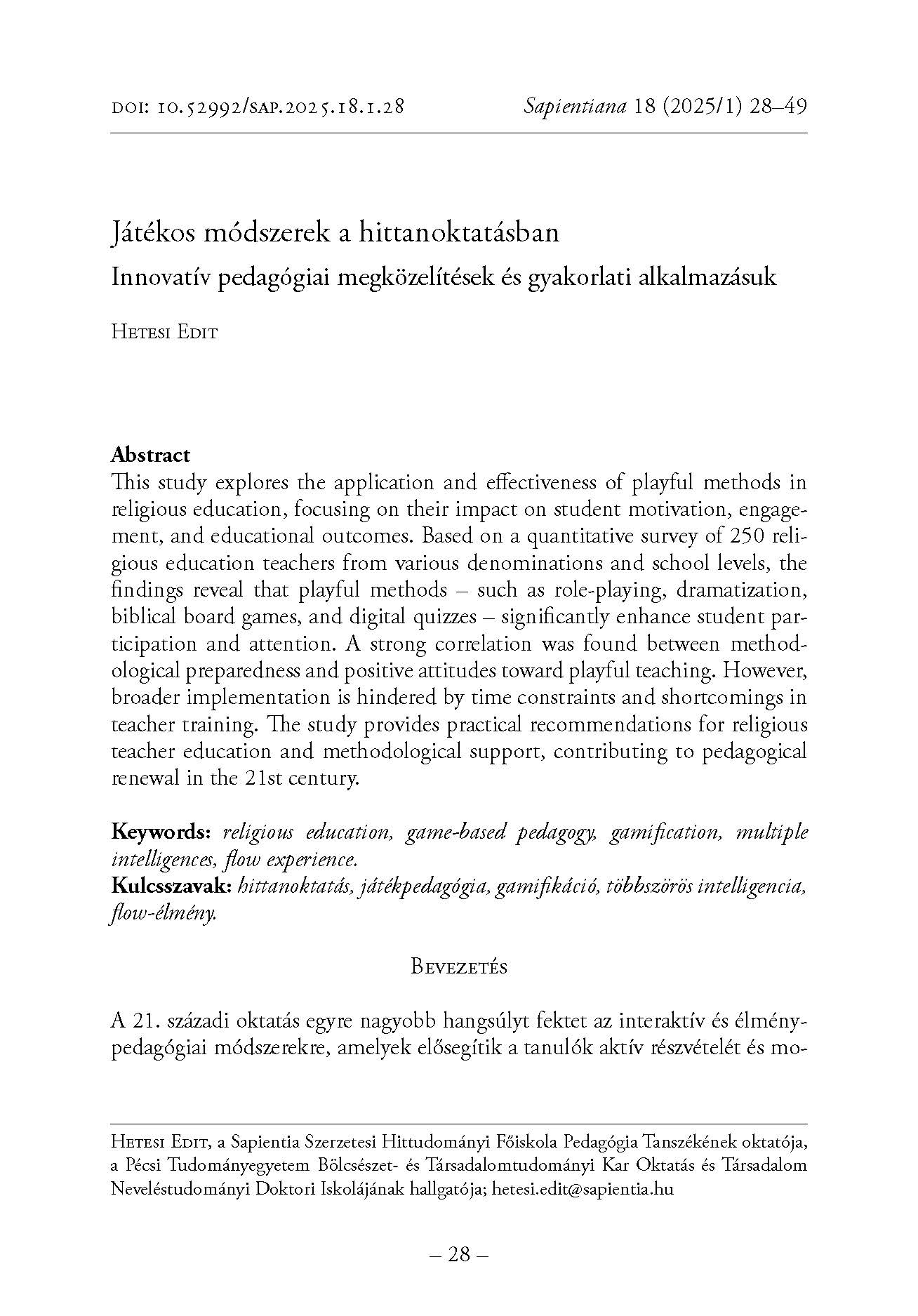Játékos módszerek a hittanoktatásban
Innovatív pedagógiai megközelítések és gyakorlati alkalmazásuk
Absztrakt
A tanulmány célja a játékos módszerek hittanoktatásban való alkalmazásának feltárása és értékelése, különös tekintettel a tanulók motivációjára, bevonódására és az oktatás hatékonyságára gyakorolt hatásukra. A kvantitatív kutatás 250 hittanár válaszain alapul, akik különböző felekezetek és oktatási szintek képviselői. Az eredmények szerint a játékos módszerek – különösen a szerepjátékok, dramatizálás, bibliai társasjátékok és digitális kvízek – jelentősen fokozzák a tanulók részvételét és figyelmét. A módszertani felkészültség és a játékos tanításhoz való attitűd szoros kapcsolatban áll, ugyanakkor a módszerek szélesebb körű alkalmazását gátolja az időhiány és a képzésbeli hiányosságok. A tanulmány gyakorlati ajánlásokat fogalmaz meg a hittanárképzés és a módszertani támogatás fejlesztésére, hozzájárulva a 21. századi pedagógiai megújuláshoz.







